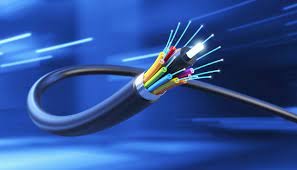What is a data centre and how does it work?
A Data Centre is a facility that houses network computers, storage systems and computing infrastructure.
We live in the age of big data, where the sheer volume of data processed on a day-to-day basis dwarfs anything that businesses have been involved with in the past. As a result, this 'big data needs to be handled correctly.
It is, after all, crucial that you can analyse all of your data, at all times. Establishing such efficient data handling will not only allow your business to remain productive but also provide an edge over your competition. And the best way to handle this data is with a data centre.

What is a Data Centre?
It's important that your IT infrastructure is equipped to handle and process your data. The demands of the modern age mean that you constantly need your data to be available. Traditional solutions, such as hard drives and physical storage mediums, simply aren't able to cope with the amount of data being processed in the 21st century. And it was this problem that led to the development of data cabling Westminster centres.
A data centre is, in its simplest form, a facility used to centralise an organisation's IT infrastructure and provide data storage. This setup typically enhances a company's ability to maintain data continuity, provide backup power support and deliver an environment that ensures IT equipment runs at its optimum efficiency. These data centres can be based onsite or remotely through a number of different options.
What Types of Data Centres Are There?
Every business is unique and, accordingly, has different needs when it comes to IT and data processing. Therefore, a number of different data centre models have evolved as IT has advanced. The four main types of the data centre are:
Enterprise: one of the most common data centres, enterprise solutions are based on-site; it's a type of data centre that provides a wide range of benefits to the end-user. Performance is enhanced as the equipment is located so close to the business, scalability can easily be analysed and implemented whilst security is high as the owner can directly monitor the data centre
Colocation Facilities: these data cabling Watford solutions are provided by external businesses that rent dedicated data processing space to numerous organisations. As well as providing valuable real estate, these colocation facilities also offer 24-hour maintenance and security services to provide customers with peace of mind. Although smaller colocation facilities will only provide racks as part of their service, large facilities are able to provide entire data centre units.
Edge: not all businesses have room for a dedicated on-site data centre, but neither are they willing to compromise on performance. Therefore, edge data centres provide a fine compromise. Located close to their user base, edge data centres are classed as being at the 'edge' of customers' networks. This close proximity reduces latency and gives increased performance in an organization's data processing.
Cloud: establishing themselves as a major force in data handling, cloud data centres have risen to prominence over the last 15 years. Using the remote model, cloud data centres allow you to access your data through the internet and run your applications through a virtual infrastructure. These platforms are provided by third party providers including Microsoft Azure, IBM Cloud and Amazon Web Services.
For more information on data centres and advice on which type is right for your business, don’t hesitate to get in touch and speak to our expert team.
Original Source: What Does a Data Centre Do?
